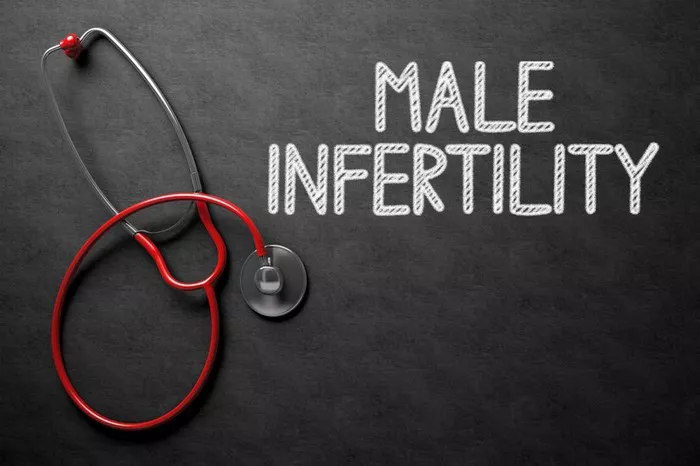Pregnancy is a time of significant change and growth, both for the mother and the developing baby. Expecting mothers often need to navigate a variety of medical decisions to ensure their health and the health of their baby. One of the most important vaccines recommended during pregnancy is the Tdap vaccine, which protects against three serious diseases: tetanus, diphtheria, and pertussis (whooping cough). Understanding when to get the Tdap vaccine is critical for both the mother’s health and the baby’s protection. In this article, we will explore the best time to get the Tdap vaccine during pregnancy and why it is essential for maternal and infant health.
What is the Tdap Vaccine?
The Tdap vaccine is a combination vaccine that protects against three potentially life-threatening infections:
- Tetanus – Caused by bacteria that produce a toxin affecting the nervous system. It can lead to muscle spasms and even death if left untreated.
- Diphtheria – A bacterial infection that can cause a sore throat, fever, and severe complications like heart failure and paralysis.
- Pertussis (Whooping Cough) – A highly contagious respiratory disease that causes severe coughing fits, making it difficult for the person to breathe.
While all three diseases can be dangerous, pertussis is particularly concerning for infants. Infants are at the highest risk of severe complications from whooping cough, including hospitalization and death. This is one of the reasons why the Tdap vaccine is recommended during pregnancy.
Why is Tdap Important During Pregnancy?
The Tdap vaccine during pregnancy is crucial for several reasons:
Protecting the Mother: The vaccine helps protect the mother from contracting tetanus, diphtheria, and pertussis, especially in the event of injury or exposure to these bacteria.
Protecting the Baby: The vaccine is not only for the mother’s protection but also for the baby. When a pregnant woman receives the Tdap vaccine, her body produces antibodies against pertussis, which are passed to the baby. These antibodies help protect the newborn until they are old enough to receive their own vaccinations.
Preventing Infant Mortality: Whooping cough can be fatal in infants. By vaccinating during pregnancy, the mother can provide her baby with some protection against this deadly disease in the early months of life.
In addition to the direct protection the vaccine provides, it also helps reduce the overall burden of pertussis in the community, contributing to herd immunity.
When Should You Get the Tdap Vaccine During Pregnancy?
The Centers for Disease Control and Prevention (CDC) and the American College of Obstetricians and Gynecologists (ACOG) recommend that all pregnant women receive the Tdap vaccine between 27 and 36 weeks of pregnancy, ideally during the third trimester.
Why Third Trimester?
The reason the third trimester is the ideal time for the Tdap vaccine is that it allows the mother to produce the highest number of antibodies, which are then passed to the baby. This timing also ensures that the baby will be protected during the most vulnerable time in the early months of life, before they can receive their own vaccinations. The third trimester is typically the most effective window for vaccination because:
Maximum Antibody Transfer: The placenta allows for the transfer of antibodies from the mother to the baby, and this transfer is most efficient in the third trimester.
Optimal Protection for the Newborn: Infants do not receive their first dose of the DTaP (diphtheria, tetanus, and pertussis) vaccine until they are 2 months old. Therefore, maternal antibodies from the Tdap vaccine help protect the baby in the first few months of life when they are most vulnerable to pertussis.
Can You Get Tdap Earlier Than the Third Trimester?
While the best time to get the Tdap vaccine is between 27 and 36 weeks of pregnancy, getting the vaccine earlier than this is generally not recommended. This is because earlier administration may not provide as much benefit in terms of antibody transfer to the baby. However, if a pregnant woman has not received the vaccine in the recommended time frame, she can still get it later in pregnancy. The vaccine is safe and beneficial at any point during the pregnancy if it is missed in the recommended window.
In certain situations, healthcare providers may recommend the vaccine earlier in pregnancy. For example, if a pregnant woman is at increased risk of exposure to pertussis, such as during an outbreak, or if the woman has other medical considerations that make vaccination important, she may be advised to get the vaccine sooner. In these cases, the benefits of vaccination outweigh the timing.
What If You Are Not Pregnant and Need a Tdap Vaccine?
If you are not pregnant and need a Tdap vaccine, it is generally recommended for adults every 10 years, especially if you will be around infants, or if you have not received a dose in the past 10 years. In some cases, adults may need to receive the Tdap vaccine in preparation for pregnancy if they haven’t been vaccinated in recent years.
For women planning to become pregnant, it’s a good idea to receive the Tdap vaccine before pregnancy if they haven’t already done so. This ensures that the woman is protected and that there is no gap in immunity before becoming pregnant.
Are There Any Risks of Getting Tdap During Pregnancy?
The Tdap vaccine is generally safe for both the mother and the baby. It has been studied extensively, and there is no evidence to suggest that the vaccine poses significant risks during pregnancy. Some women may experience mild side effects after receiving the vaccine, including:
- Pain or swelling at the injection site
- Fatigue
- Headache
- Muscle aches
- Low-grade fever
These side effects are generally short-lived and go away within a few days. Serious side effects are rare.
What If You Miss the Ideal Window for Tdap?
If a pregnant woman misses the ideal window of 27 to 36 weeks for the Tdap vaccine, it is still important to receive the vaccine as soon as possible. There is no evidence that delaying the vaccine causes harm to the mother or the baby, and the vaccine will still help provide protection to the infant. If you are unsure about when to get the vaccine, consult your healthcare provider for personalized guidance.
It is also essential for close contacts of the newborn, such as fathers, siblings, and caregivers, to be vaccinated against pertussis before the baby is born to further reduce the risk of exposure.
Is the Tdap Vaccine Necessary If You Are Already Vaccinated?
Women who have previously received the Tdap vaccine may still need to get another dose during pregnancy. This is because immunity from the vaccine can decrease over time, and new pregnancies provide a new opportunity to protect the newborn. Even if you have had the Tdap vaccine within the last 10 years, it is important to receive it again during pregnancy to provide the best protection for your baby.
Other Important Vaccinations During Pregnancy
In addition to the Tdap vaccine, there are other vaccines that are recommended during pregnancy to protect both the mother and the baby:
Flu Vaccine: Pregnant women are at higher risk of complications from the flu. The flu vaccine is recommended during flu season, regardless of the trimester.
Hepatitis B: If a woman is at risk for hepatitis B, vaccination is recommended during pregnancy.
COVID-19 Vaccine: Depending on the circumstances and current recommendations, the COVID-19 vaccine may be recommended for pregnant women.
It is important to discuss vaccination plans with your healthcare provider to ensure that you are up to date on all recommended immunizations during pregnancy.
Conclusion
The Tdap vaccine is a critical part of prenatal care, offering essential protection against tetanus, diphtheria, and particularly pertussis, which can be life-threatening to infants. The best time to get the Tdap vaccine during pregnancy is between 27 and 36 weeks of gestation, as this timing provides the most effective protection for both the mother and the baby. If you miss this window, it is still important to get vaccinated as soon as possible. Always consult your healthcare provider to make sure you are following the recommended guidelines for your specific situation. By getting vaccinated, you are taking a vital step to safeguard your own health and give your baby the best possible start in life.
Related topics:


























